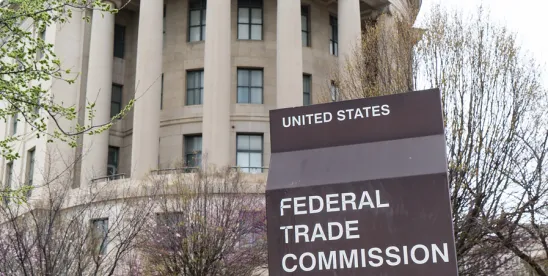On November 10, 2022, the Federal Trade Commission issued its “Policy Statement Regarding the Scope of Unfair Methods of Competition Under Section 5 of the Federal Trade Commission Act.” The Statement replaces prior guidance on the subject that was rescinded by the FTC on July 1, 2021[1] and “supersedes all prior FTC policy statements and advisory guidance on the scope and meaning of unfair methods of competition under Section 5 of the FTC Act.”
The Statement describes “the key principles of general applicability concerning whether conduct is an unfair method of competition.” It also states that it “makes clear that Section 5 reaches beyond the Sherman and Clayton Acts to encompass various types of unfair conduct that tend to negatively affect competitive conditions.”
The Statement asserts that, in enacting Section 5, Congress’s objective was to create a new prohibition broader than, and different from, the Sherman and Clayton Acts. The “key function” of the FTC in applying the provision is “to identify unfair forms of competition.”
According to the Statement, Congress made it clear that unfair methods of competition need not require a showing of current anticompetitive harm or anticompetitive intent. Rather, Congress wanted the FTC to stop monopolies in their “incipiency.”
In addition, Congress created the FTC as an “expert body” charged with “elucidating the meaning of Section 5.” As such, its determinations as to what constitutes an unfair method of competition are entitled to “great weight.”
According to the Statement, two elements are required to establish an unfair method of competition. First, the conduct must be conduct undertaken by an actor in the marketplace as opposed to simply a condition of the marketplace. Also, the conduct must implicate competition, but the relationship can be indirect.
Second, the method of competition must be unfair, meaning that it goes beyond competition on the merits. There are two key criteria in determining whether this prong is met. First, the conduct may be “coercive, exploitative, collusive, abusive, deceptive, predatory, or involve the use of economic power of a similar nature.” Second, the conduct “must tend to negatively affect competitive conditions.”
In an effort to provide more clarity, the Statement sets out a “non-exclusive set of examples” of conduct found to have violated Section 5, “focusing on conduct that constitutes an incipient violation of the antitrust laws or that violates the spirit of the antitrust laws.” Among the listed examples are:
-
invitations to collude;
-
practices that facilitate tacit coordination;
-
parallel exclusionary conduct that may cause aggregate harm;
-
conduct undertaken with other acts and practices that cumulatively may tend to undermine competitive conditions;
-
fraudulent and inequitable practices that undermine the standard-setting process or interfere with the Patent Office’s work;
-
mergers or acquisitions of a nascent or potential competitor;
-
using market power in one market to gain a competitive advantage in an adjacent market;
-
interlocking directors and officers of competing firms not covered by the literal language of the Clayton Act;
-
commercial bribery and corporate espionage.
Although lacking in specific guidance, the Statement is a clear warning that the FTC views its authority under Section 5 expansively and that it intends to vigorously exercise that authority to attack a broad range of conduct that it considers anticompetitive. Just what activities the FTC will challenge and in what sectors of the economy and, importantly, how much deference it will be accorded by the courts, remains to be seen.
FOOTNOTES
[1] Federal Trade Commission, Statement of the Commission on the Withdrawal of the Statement of Enforcement Principles Regarding “Unfair Methods of Competition” Under Section 5 of the FTC Act (July 9, 2021).




 />i
/>i

